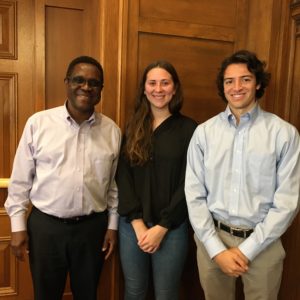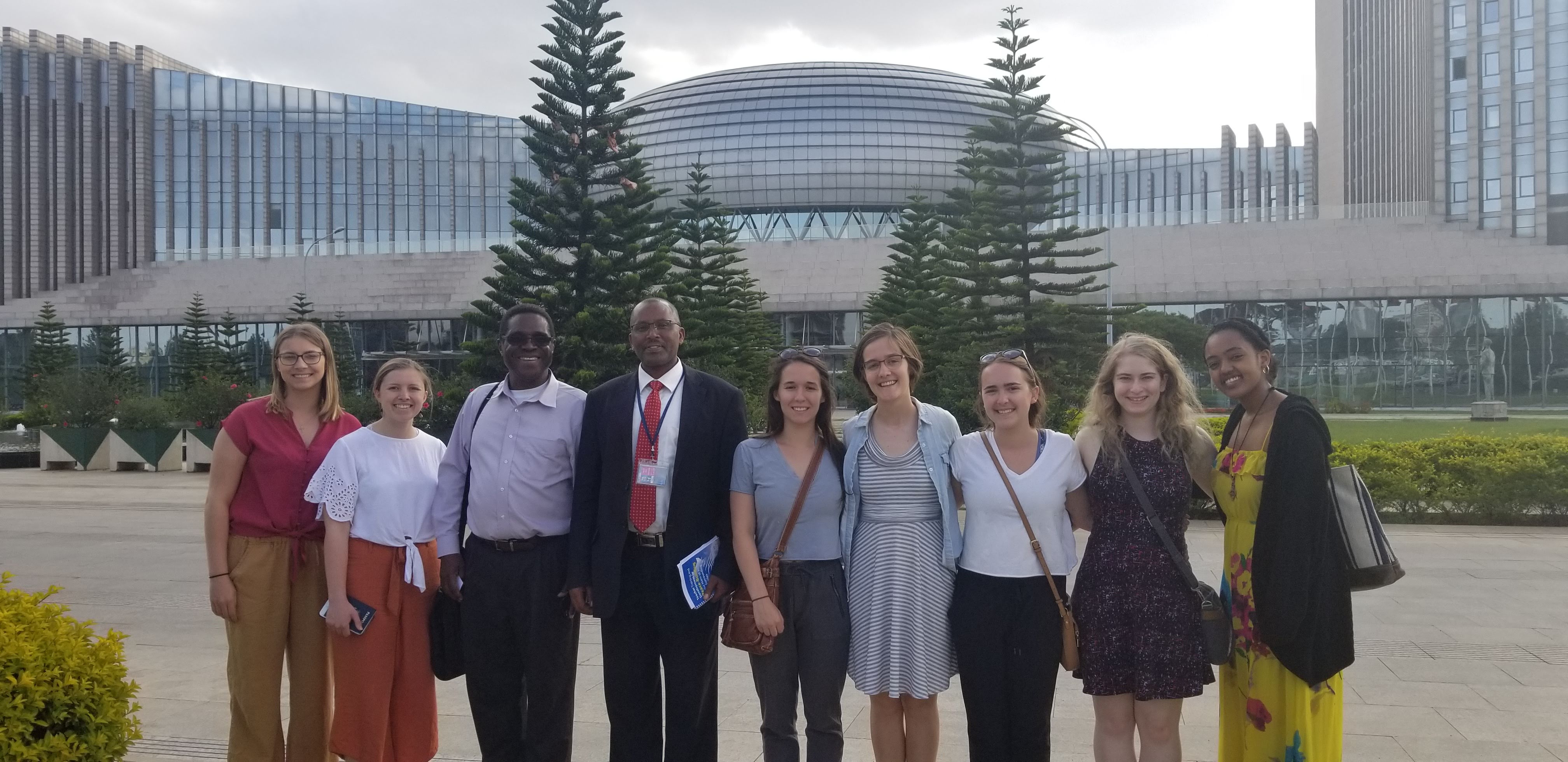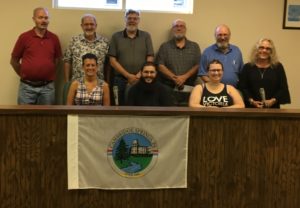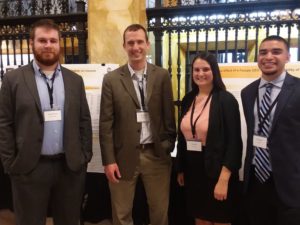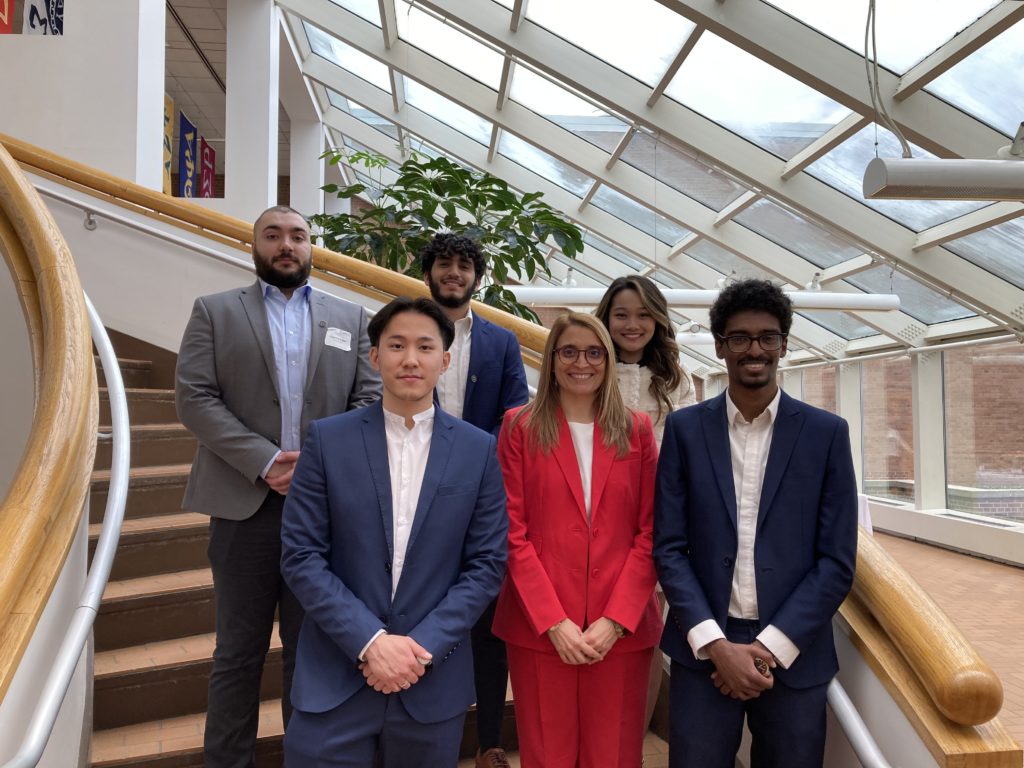
The Penn State Behrend-Sigma Xi Undergraduate Research and Creative Accomplishment Conference provides an opportunity for students to present their research and creative accomplishment results in a public setting. Many students use this regional conference to practice their presentations prior to presenting them in a national or international setting.
Allegheny students having recently completed their senior projects, participated in the Marketing and Economics session in preparation for their upcoming oral defense. The students presented before a panel of judges made up of academics from a variety of disciplines from western Pennsylvania and Ohio.
- First prize – Raymond Englert, Analyzing Manufacturing Employment Decline in Western Pennsylvania (Professor Rancati)
- Second prize – Thi Thao Nguyen, Customer Experience in Coffee Stores in Vietnam: A Multidisciplinary Research (Professor Rancati)
- Nabil Agag, State of The American Healthcare System: The Failure of our Time (Professor Michaelides)
- Arigun Bayaraa, Super Bowl commercials’ effectiveness in creating a diverse and inclusive brand image: A neuromarketing approach (Professor Rancati)
- Khalid Mohamed, To What Extent is the Sugar-Sweetened Beverage Tax an Effective Government Intervention Towards Public Health? Reviewing Discrepancies Between Sales and Consumption (Professor Michaelides)
The Allegheny College Senior Project
The Allegheny College Senior Project is not a mere report or semester paper, but a significant piece of independent study, research or creative work conducted under the supervision of one or more faculty members. The outcome of a Senior Project is more than a grade or a written document; for the student it often results in a new way of looking at complex problems and inspires an appreciation for the power of ideas that might previously have seemed like abstract concepts in a textbook. Often it can be a pivotal time when a student realizes his or her own abilities and potential. The Senior Project also improves opportunities for graduate school and employment. Learn more
The Department of Business and Economics
At the Bruce R. Thompson Center for Business and Economics, students may choose to pursue a major in economics or business with each course of study applying the rigor of a strong background in economic theory with the added benefit of interdisciplinary course work that allows students to create a concentration that matches their personal interests. Like many related disciplines in a liberal arts curriculum, Business and Economics emphasizes oral, written, and quantitative methods in courses and seminars.
We offer students a program that requires a balance of theory and application in its curriculum. The offerings are a combination of theory courses, quantitative work, and a number of field courses that are also accessible to non-majors and minors. It is a program designed to provide a liberal educational foundation for citizen and voter, for postgraduate study and careers such as international affairs, law, business, banking and finance, human resources, accounting, marketing, education and public policy. Learn more
 This summer, rising senior Ray Englert is working on a research project with Dr. Tim Bianco investigating the regional economy, while concurrently working with the Director of Student Life planning activities for the upcoming semester. We asked Ray…
This summer, rising senior Ray Englert is working on a research project with Dr. Tim Bianco investigating the regional economy, while concurrently working with the Director of Student Life planning activities for the upcoming semester. We asked Ray…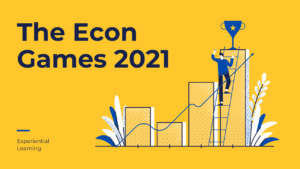 Allegheny College joined 18 colleges and universities participating in the 2021 Econ Games on March 12, 2021. The Econ Games are an experiential learning experience frequently referred to as “an internship in a day” for participating students. This year, the competition was held virtually the first week in March with additional networking and development opportunities throughout February. Assistant Professor of Economics and Faculty Advisor, Dr. Kathryn Bender led the way recruiting students from all majors to participate in this data analytics and research event designed to help students solve real-world problems.
Allegheny College joined 18 colleges and universities participating in the 2021 Econ Games on March 12, 2021. The Econ Games are an experiential learning experience frequently referred to as “an internship in a day” for participating students. This year, the competition was held virtually the first week in March with additional networking and development opportunities throughout February. Assistant Professor of Economics and Faculty Advisor, Dr. Kathryn Bender led the way recruiting students from all majors to participate in this data analytics and research event designed to help students solve real-world problems.
